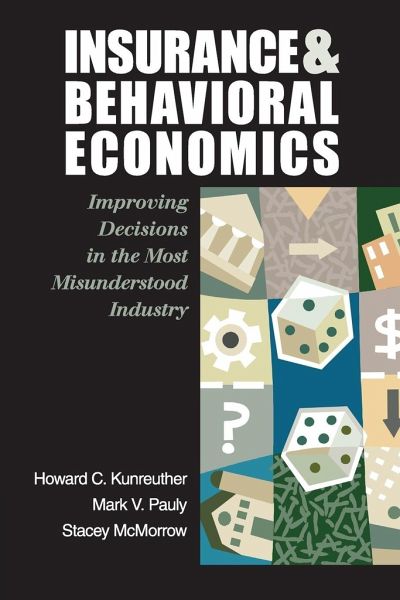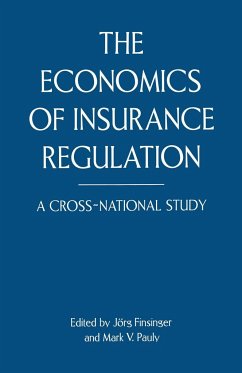
Insurance and Behavioral Economics
Versandkostenfrei!
Versandfertig in 1-2 Wochen
40,99 €
inkl. MwSt.
Weitere Ausgaben:

PAYBACK Punkte
20 °P sammeln!
This book examines the behavior of individuals at risk and insurance industry decision makers involved in selling, buying and regulation. It compares their actions to those predicted by benchmark models of choice derived from classical economic theory. Where actual choices stray from predictions, the behavior is considered to be anomalous. Howard C. Kunreuther, Mark Pauly and Stacey McMorrow attempt to understand why these anomalies occur, in many cases using insights from behavioral economics. The authors then consider if and how such behavioral anomalies could be modified to improve individu...
This book examines the behavior of individuals at risk and insurance industry decision makers involved in selling, buying and regulation. It compares their actions to those predicted by benchmark models of choice derived from classical economic theory. Where actual choices stray from predictions, the behavior is considered to be anomalous. Howard C. Kunreuther, Mark Pauly and Stacey McMorrow attempt to understand why these anomalies occur, in many cases using insights from behavioral economics. The authors then consider if and how such behavioral anomalies could be modified to improve individual and social welfare. This book describes situations in which both public policy and the insurance industry's collective posture need to change. This may require incentives, rules and institutions to help reduce both inefficient and anomalous behavior, thereby encouraging behavior that will improve individual and social welfare.














